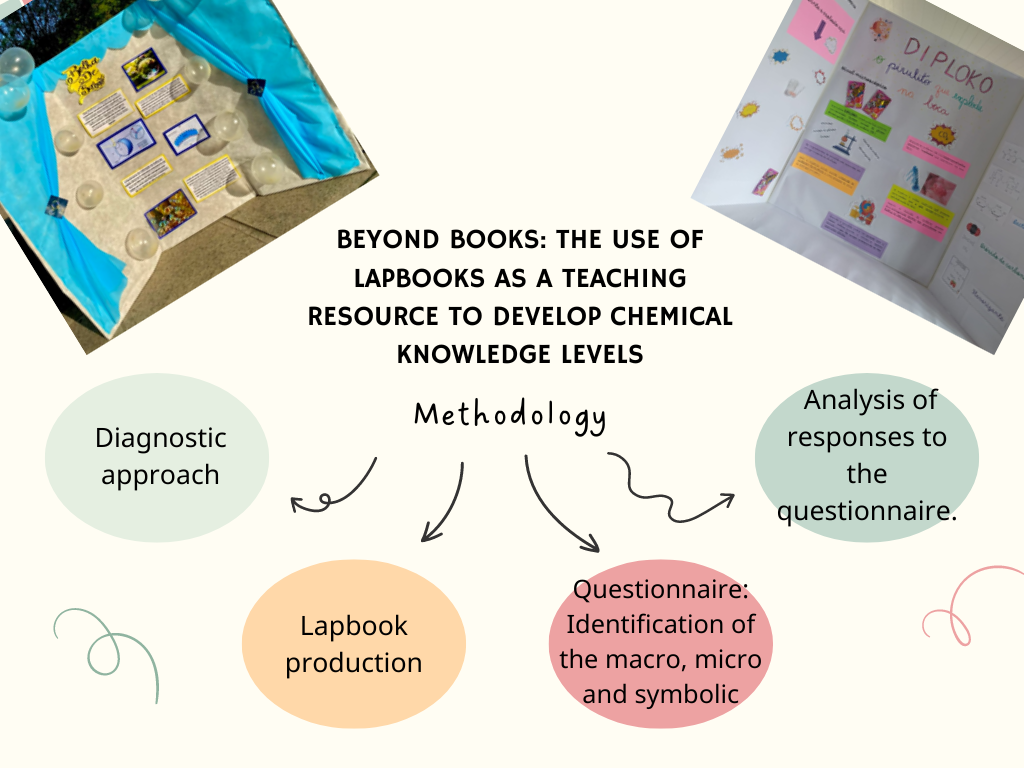ALÉM DOS LIVROS: A UTILIZAÇÃO DE LAPBOOKS COMO RECURSO DIDÁTICO PARA DESENVOLVER OS NÍVEIS DO CONHECIMENTO QUÍMICO
DOI:
https://doi.org/10.36524/ric.v10i2.2457Keywords:
Johnstone triangle, chemistry teaching, lapbooks, levels of knowledgeAbstract
The purpose of this work is to analyze students' perception of everyday and scientific topics and their relationship with the three levels of chemical knowledge, macro, micro and symbolic, based on the production of a lapbook, which consists of an interactive poster, made with colored papers, printed photos and other materials that serve to explain a topic or activity, promoting meaningful learning. The activity was divided into three stages: diagnostic approach, aiming to identify students' prior knowledge on some everyday topics and present the concept of the three levels of chemical knowledge, production of a lapbook, and creation of a video about the presentation, with posting on virtual learning environment. As a final step, students responded to a questionnaire containing four (04) open questions. Based on the students' responses to the questionnaire, it was observed that the articulation between everyday and scientific knowledge can facilitate learning based on real contexts, bringing Chemistry closer to life in a meaningful way, promoting students the ability to move between three levels of chemical knowledge equally.

Downloads
Published
Issue
Section
License
Copyright (c) 2024 Revista Ifes Ciência

This work is licensed under a Creative Commons Attribution-NonCommercial-NoDerivatives 4.0 International License.
Autores que publicam nesta revista concordam com os seguintes termos:
- Autores mantém os direitos autorais e concedem à revista o direito de primeira publicação, com o trabalho simultaneamente licenciado sob a Licença Creative Commons Attribution que permite o compartilhamento do trabalho com reconhecimento da autoria e publicação inicial nesta revista.
b. Autores têm permissão e são estimulados a publicar e distribuir seu trabalho online (ex.: em repositórios institucionais ou na sua página pessoal) a qualquer ponto antes ou durante o processo editorial, já que isso pode gerar alterações produtivas, bem como aumentar o impacto e a citação do trabalho publicado (Veja O Efeito do Acesso Livre).


